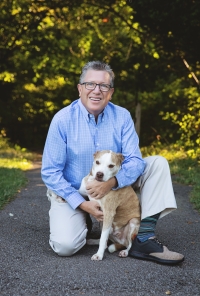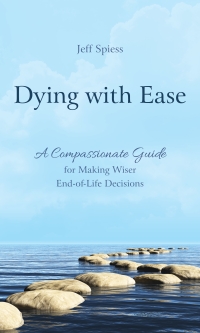...but I could be wrong
Everybody seems so sure. Politicians and pundits and preachers proclaim their righteous opinions and postulate the depravity and corruption of their opponents. Dogmas are spouted and anathemas ann ounced with a vigor that would make Savonarola cringe. Is everybody so convinced they are right, or are they just trying to make points, to score victory in a power struggle? Whatever the motivation, whoever “wins”, the inevitable result is increased frustration, suffering, and desperation in all of us. After decades of working with the terminally ill, I believe they might have something to teach us about this.
ounced with a vigor that would make Savonarola cringe. Is everybody so convinced they are right, or are they just trying to make points, to score victory in a power struggle? Whatever the motivation, whoever “wins”, the inevitable result is increased frustration, suffering, and desperation in all of us. After decades of working with the terminally ill, I believe they might have something to teach us about this.
Through our lives, we develop opinions about the big issues of politics, religion, and morality, and about smaller things like the “right” way to dress, drive, even sit at the dinner table. We tend to universalize our opinions, to think that we are right, and therefore others are wrong. But when you’re dying, it become harder to be sure. Having a terminal illness, facing impending death, is the ultimate evidence of our fallibility. Certainty is challenging when you cannot even be sure you will see tomorrow’s sunrise. Some people, it is true, hold rigidly to their opinions and dogmas until the very end, but in my experience, they are a distinct minority. Dying tends to soften us. Conversations around the hospice bed tend to focus on relationships, healing, forgiveness, and love. Reconciliation with estranged family members becomes more important than whatever the issue was that fractured the relationship in the first place.
When you are confronted with your mortality, your certainty arises in new places. You may begin to realize that you had your priorities backwards for most of your life, and can now see clearly what is good, what is best, and what is superfluous. What becomes essential are the values at your core - the ones you assumed would always be there, so you took shortcuts around or avoided for much of your life. Those values are often spiritual, rarely political, almost never material. The essentials are persons and relationships, gratitude, regret, and love. Learning how to die is the best teacher in learning how to live.
I suspect that we have a great deal to learn here from the dying. I wonder, for example, how political diatribes might change if politicians and pundits recognized that they, just like the person who epitomizes their opposition, are mortal human beings, subject to flaws and foibles and mistakes, and that, at whatever future time, minutes or decades from now, their personal reckoning occurs, they will see that the vitriol they spouted, the enemies they made, the divisions they enlarged, were failures to be regretted, and that the issues that seemed critical were of minimal significance in the face of life’s largest reality. A wise clergyman once advised that rather than think, “I am right,” consider the position “I am also right.” I can be right, my opponent can be right, life is not a zero-sum game. Advancement happens when all those who are right, whether right or left or center, recognize the possibility of right-ness in the other and the possibility of some wrong-ness in myself.
I think the dying have it right on this score, but then, I might be wrong.

